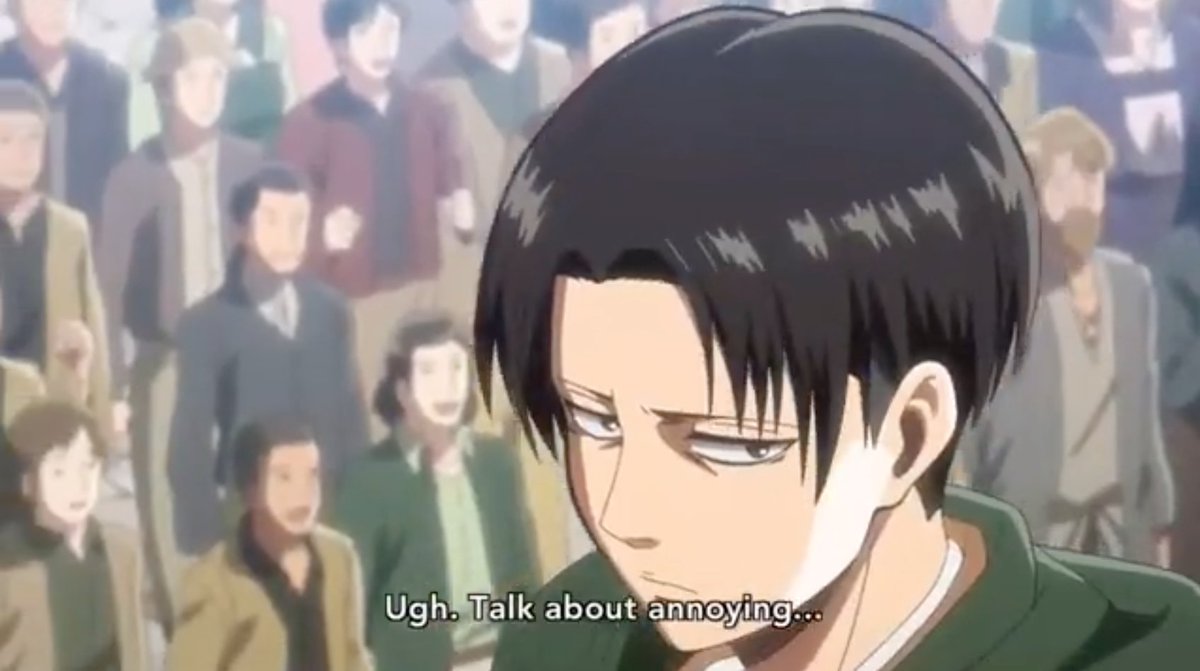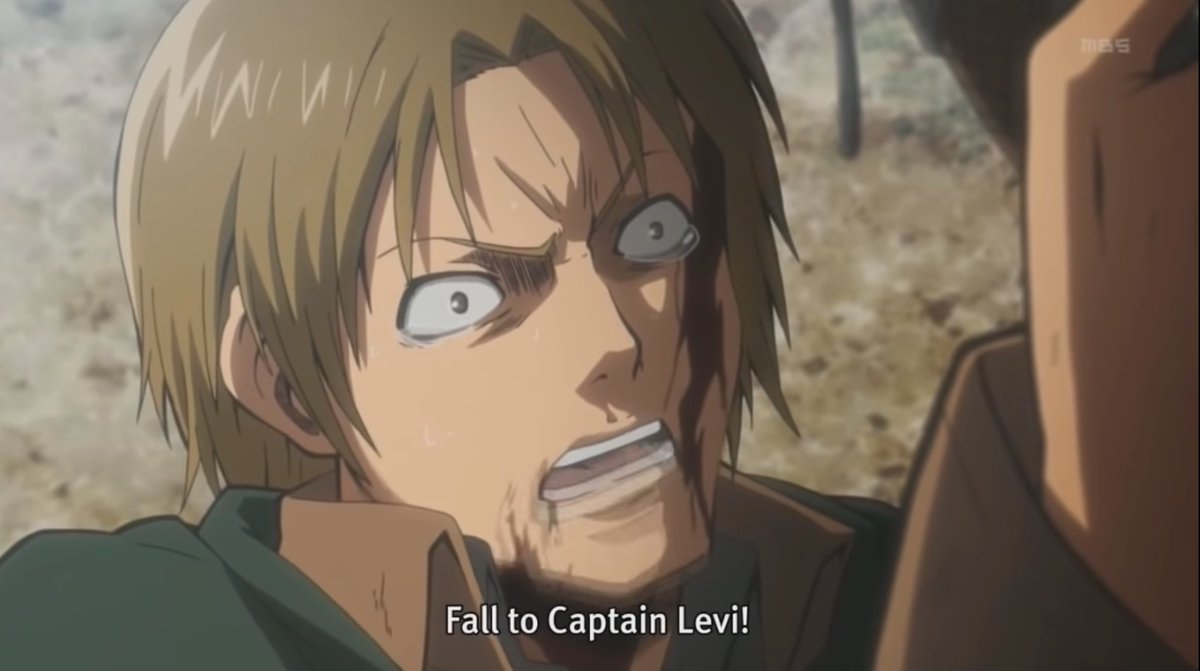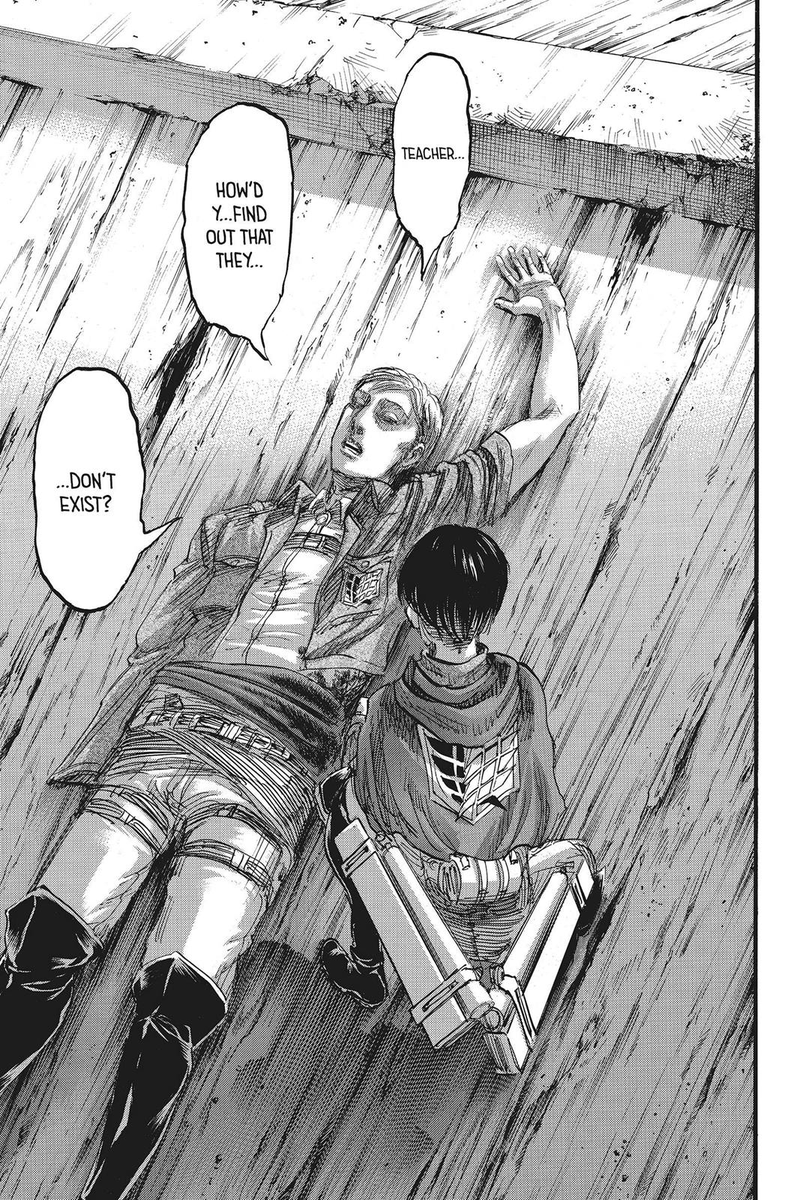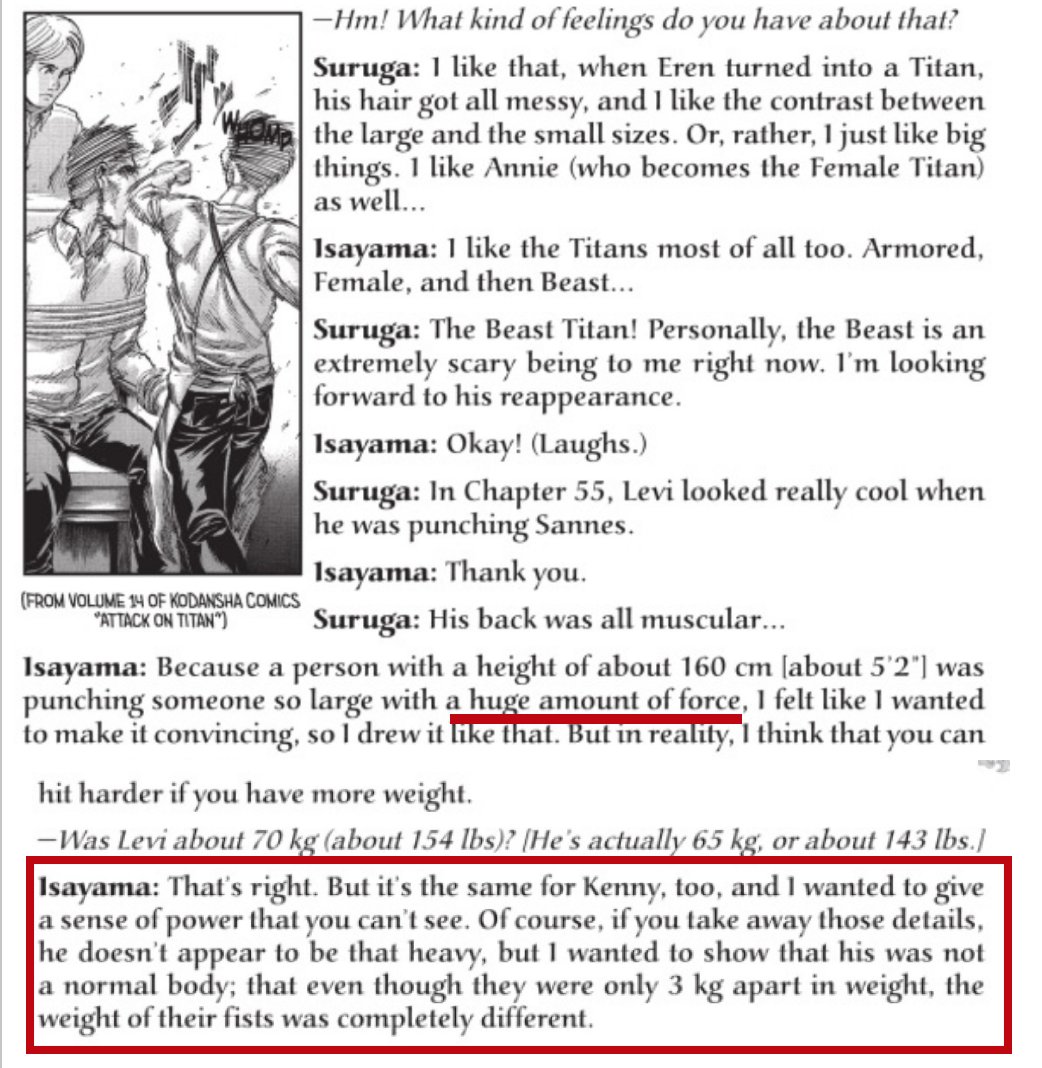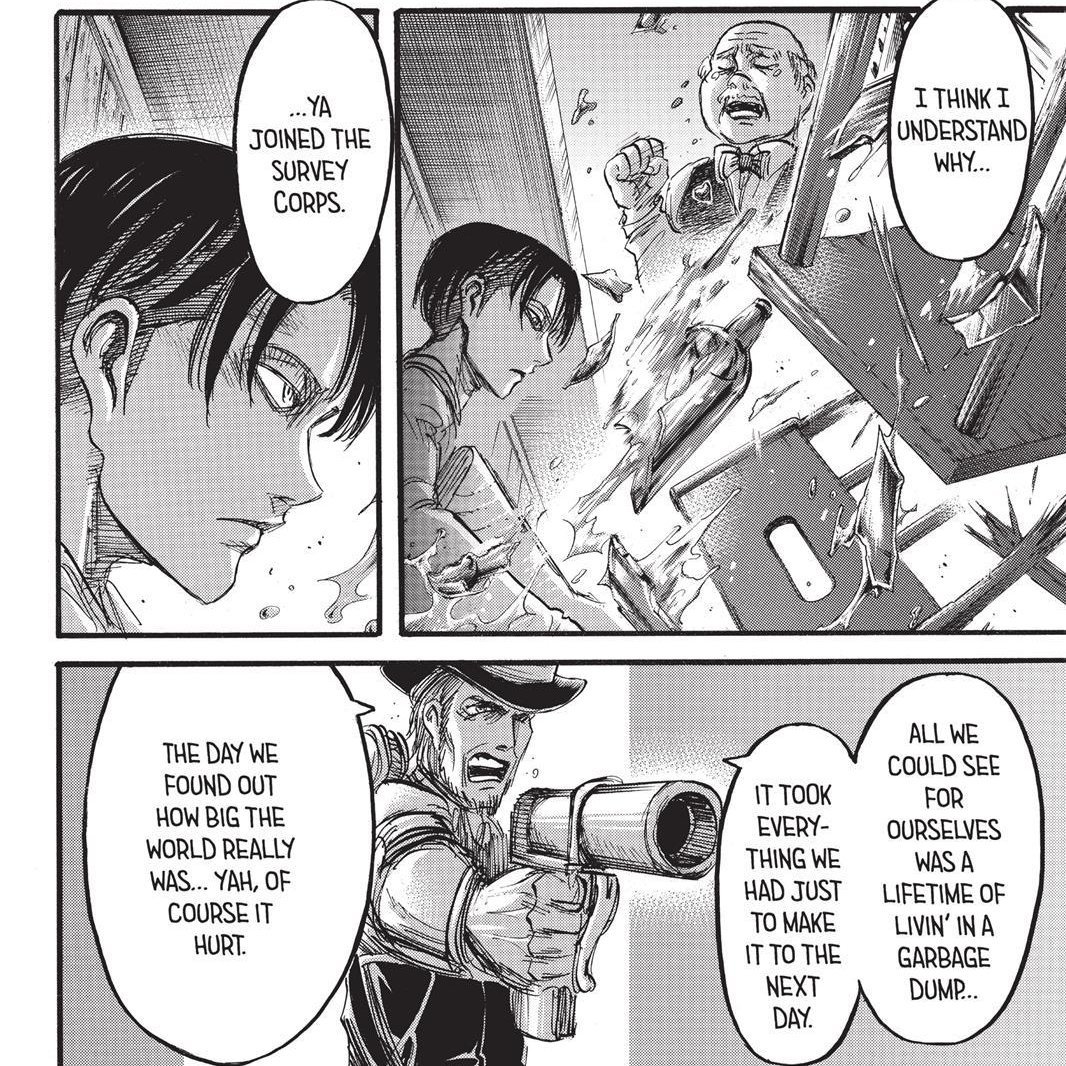Hange Zoe: Champion of Discovery and Innovation
Analysis exploring the root and meaning of Hange's desire for knowledge- and its role in Hange's arc
#aotmangaspoilers
Analysis exploring the root and meaning of Hange's desire for knowledge- and its role in Hange's arc
#aotmangaspoilers

There are many smart characters in AoT, but Hange's type of intelligence is more scientific, focused on deduction & innovation- the desire to know more & understand defines the character
This desire is tested over Hange's arc & plays a crucial role in the character's conclusion
This desire is tested over Hange's arc & plays a crucial role in the character's conclusion

Hange's intro establishes an approach to discovery that is very carefree-
When reminded about experimentation risks, Hange stresses that learning more is absolutely worth it
Whereas other Scouts fear or disdain titans, Hange finds them endlessly fascinating, even when in danger



When reminded about experimentation risks, Hange stresses that learning more is absolutely worth it
Whereas other Scouts fear or disdain titans, Hange finds them endlessly fascinating, even when in danger
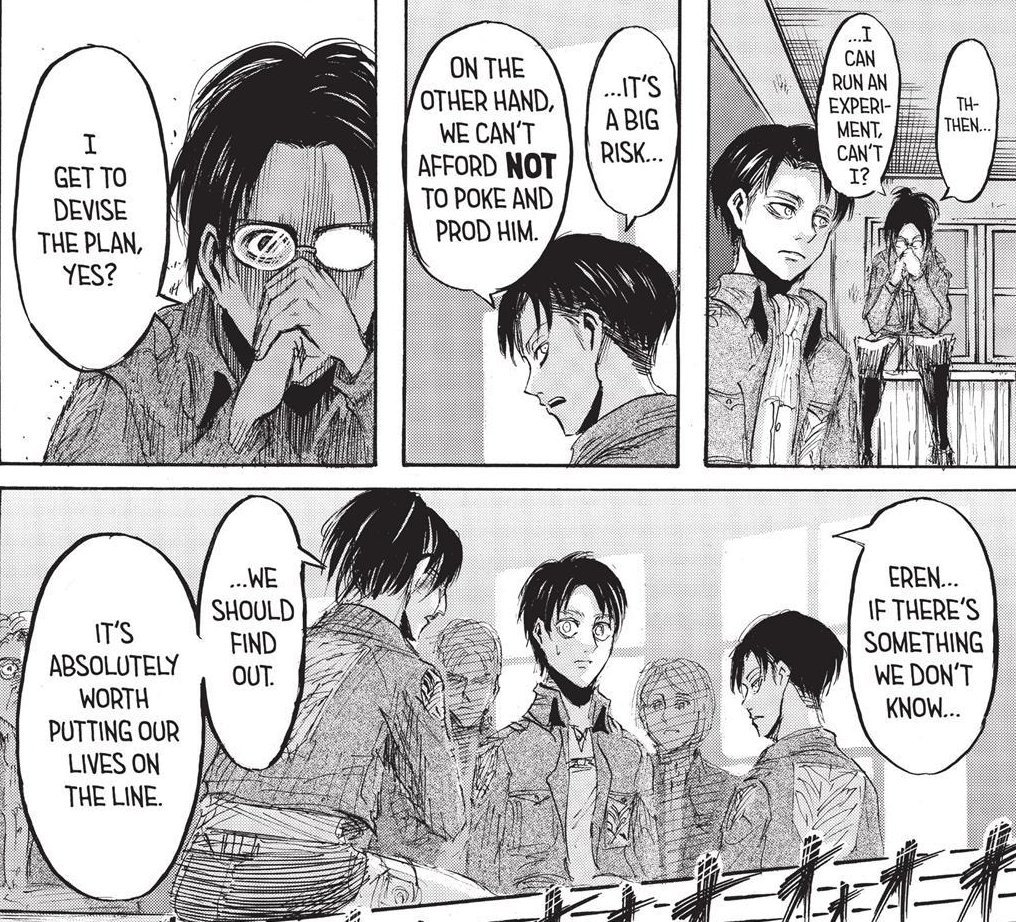



But Hange wasn't always driven by this; originally, Hange instead relied on hatred for inspiration and the power to fight, a coping mechanism
It was a purposeful choice to channel the impotent rage of loss into something more positive and productive, one Hange continues to make



It was a purposeful choice to channel the impotent rage of loss into something more positive and productive, one Hange continues to make




This appreciation for exploration and learning more fits with the Survey Corps ideals
And Hange believed strongly in the value of information and sharing knowledge, which contributes to anger when confronted with people who hide things or suppress information


And Hange believed strongly in the value of information and sharing knowledge, which contributes to anger when confronted with people who hide things or suppress information



This puts Hange in conflict with the rulers of the Walls. The foundation of Karl Fritz's "paradise" is ignorance & maintained through stunting technological advancement & concealing knowledge of the world
Hange's reaction to learning of the technological advancement suppression:

Hange's reaction to learning of the technological advancement suppression:
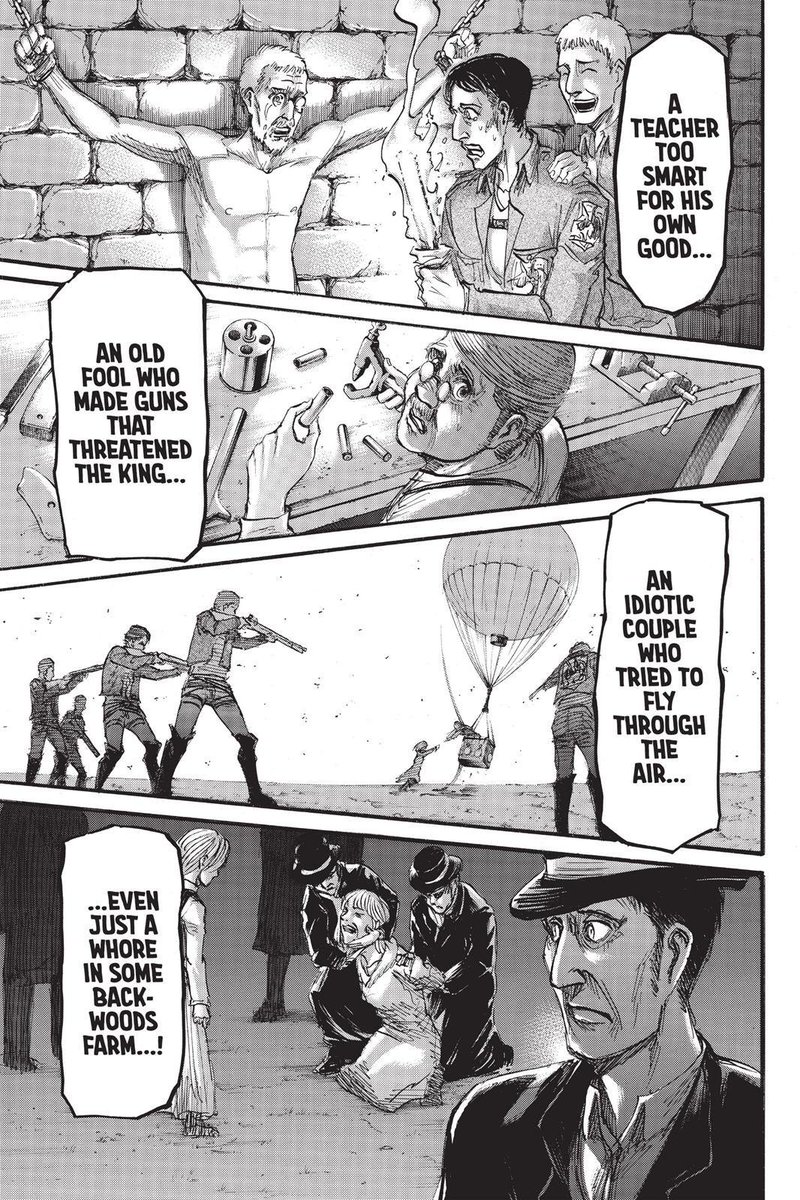

Hange's fights the idea that controlling the narrative and access to info has value
This furthers Hange's character as someone who is anti-conformist, living in defiance of the expectations and limitations of society, eccentric and challenging the status quo
But that's tested

This furthers Hange's character as someone who is anti-conformist, living in defiance of the expectations and limitations of society, eccentric and challenging the status quo
But that's tested


We see cracks even early on begin to dampen Hange's conviction & enthusiasm
Learning the titan experiments' subjects were tormented people & Nick's murder because Hange wanted info out of him, the costs start to weigh on Hange, cause hesitation about the pursuit of knowledge



Learning the titan experiments' subjects were tormented people & Nick's murder because Hange wanted info out of him, the costs start to weigh on Hange, cause hesitation about the pursuit of knowledge



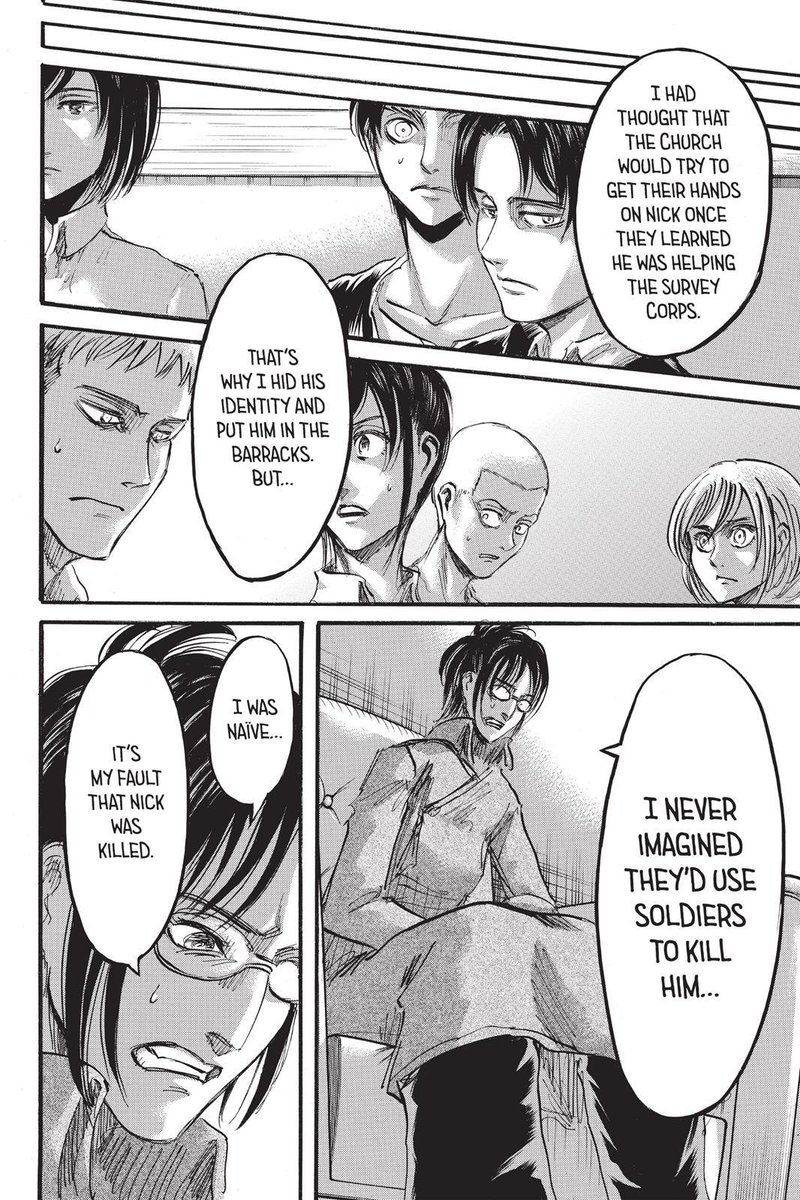
That hesitation and uncertainty is pushed even further after Hange becomes Commander, burdened by self-doubt & the weight of the role
In flashbacks, we see Hange clinging to the same value of innovation, progress & discovery, through the Liberio survey & the volunteers' info



In flashbacks, we see Hange clinging to the same value of innovation, progress & discovery, through the Liberio survey & the volunteers' info
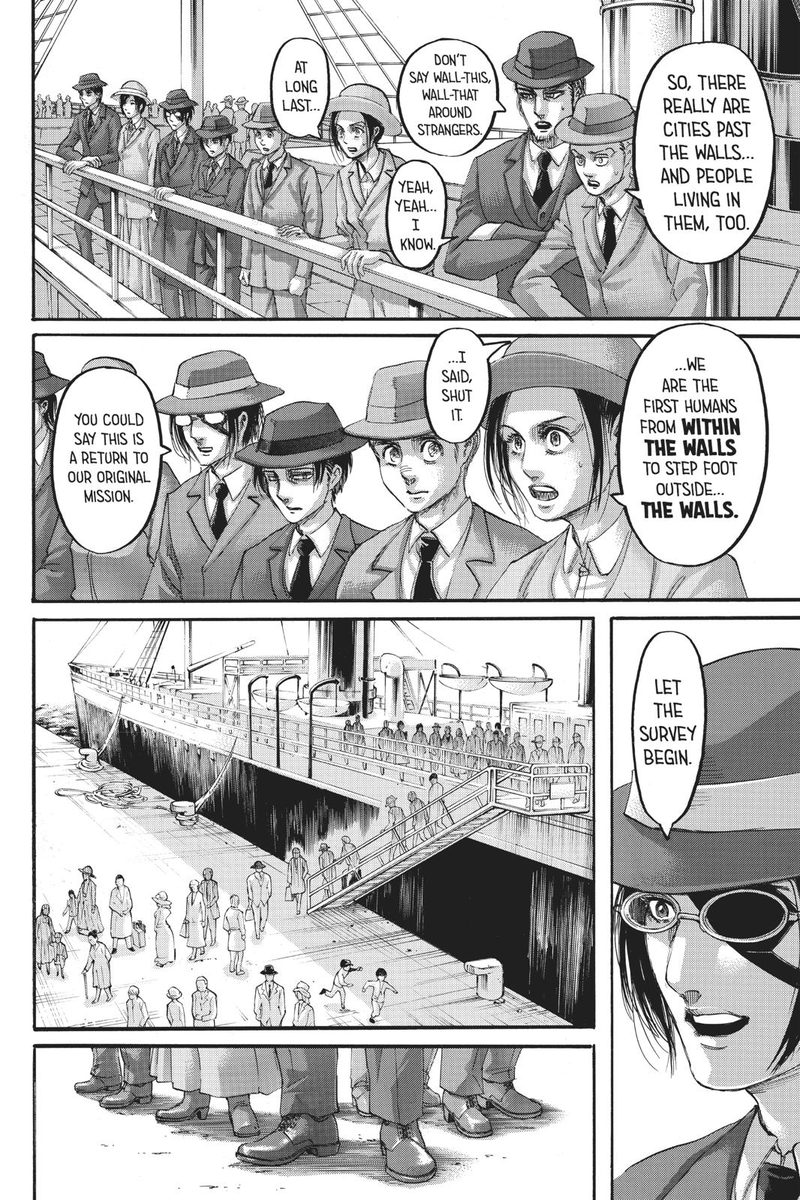



However, the exploration and new knowledge is marred somewhat by what it represents:
Great risk to Paradis because they are so outclassed technologically, seeing a fuller picture of the complex international relations that Paradis has no place in & the history used against them



Great risk to Paradis because they are so outclassed technologically, seeing a fuller picture of the complex international relations that Paradis has no place in & the history used against them


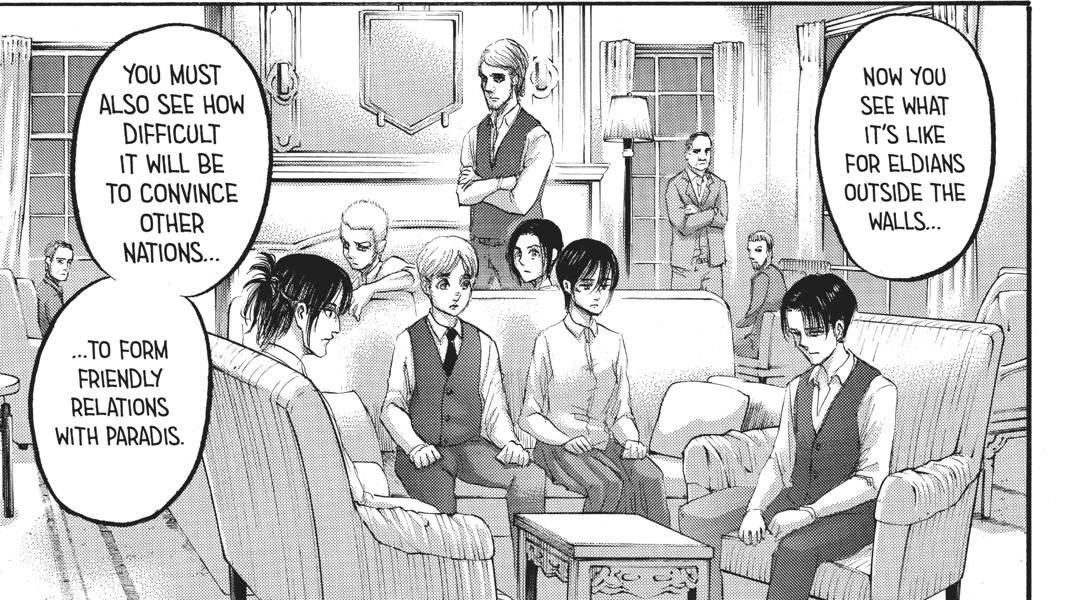

And in present time, we see a marked change
Suddenly Hange can see cases where freedom of info doesn't keep the peace or help (Eren's arrest) and actively participates in trying to contain information- which is directly called out Peaure & others, a change to that staunch belief


Suddenly Hange can see cases where freedom of info doesn't keep the peace or help (Eren's arrest) and actively participates in trying to contain information- which is directly called out Peaure & others, a change to that staunch belief



After living as someone so sure of the value of free information and that learning more is worth the risk, Hange is weighed down what that means now as the person at the top- furthered by Hange's self-doubt of being worthy of the Commander role
https://twitter.com/whofavoredfire/status/1539202727875448832
But being anti-ignorance is core to why Hange chooses to help form and lead the Alliance
Because Hange's proposed survey to Liberio, while not accomplishing its intended purpose, is a key factor to the Alliance's formation, not just for Hange
They can't be "ignorant devils"

Because Hange's proposed survey to Liberio, while not accomplishing its intended purpose, is a key factor to the Alliance's formation, not just for Hange
They can't be "ignorant devils"


Hange's conclusion reaffirms the importance of knowledge & understanding, after having that value tested over the series, seeing the consequences of pursuing that path threaten that drive-
Because Hange never lost that sense of curiosity & excitement
Because Hange never lost that sense of curiosity & excitement

Passing the mantle, Hange tells Armin that what's really needed to be Commander is the "unyielding desire for broader understanding", reaffirming that value for Hange and also highlighting why Hange fit the role in spite of self-doubt
It's something Hange has always possessed
It's something Hange has always possessed

In the end, we see Hange's passion for knowledge wasn't quashed by pressure & are reminded of what drives the character: a purposeful choice of excitement over hate or rage
When faced with despair and pain, Hange reaches for enthusiasm, passion, and hope
When faced with despair and pain, Hange reaches for enthusiasm, passion, and hope

And when facing down countless Colossal titans and certain death, Hange once again chooses that passionate positivity, to see the wonder in spite of the horror:
"Titans truly are... magnificent"
"Titans truly are... magnificent"

• • •
Missing some Tweet in this thread? You can try to
force a refresh





